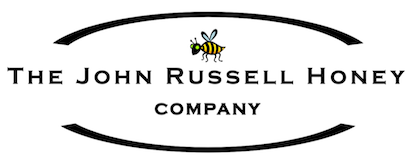Question(s) of the Month

Manuka vs Buckwheat Honey
What is the difference?
Little, actually.Manitoba Buckwheat honey has higher contents of sugars, proteins and total phenols but a lower content of MGO than imported manuka. Being imported, also meant that manuka honey has a massive ecological footprint for the slight advantages it offers as it's produced on the other side of the planet. Buckwheat honey contains significant minerals as does manuka honey, but has higher contents of manganese, iron, and zinc. Primary phenolic compounds in buckwheat honey are p-hydroxybenzoic acid, chlorogenic acid and p-coumaric acid. Antibacterial and cellular antioxidant content of buckwheat honey are slightly higher than manuka, honey, and all honeys exhibit antibacterial activity against Staphylococcus aureus and Pseudomonas aeruginosa.
Buckwheat honey is also local, and a third of the price of the imported Manuka. Manuka honey production is much more stressful to the bees due to overcrowding in New Zealand and Australia growing regions during the manuka bloom. Like almond pollination, this also sets up a disease vector putting hive health at risk.

Flavoured Honey
How do you make your flavoured honey?
Decades of trial and error and patience went into perfecting the methods and outcome of developing my flavored honey line. Blending, infusion, extraction, some cold pressed, some heat transfer, but mostly magic and love are the foundation of the special and pure flavored varieties. No one else can quite do it like we can, and no one ever will. I will tell you this though: Only fruit, or spices, or herbs are used. Local when possible, and ethically sourced with ingredients like cinnamon or cocoa. Artificial flavoring, or colors are garbage and they will never come near my kitchens. Only growing cooperatives vetted for child labour and sustainability practices are acceptable. We are all humans and have only the one planet. Morals comes first, money can follow after.

Buckwheat Honey Benefits
What are the primary benefits of buckwheat honey?
Potent Antioxidant Properties: Antioxidants are compounds produced in the body and found in foods like honey. Antioxidants help defend the cells from damage caused by potentially harmful molecules known as free radicals. Antioxidants relieve oxidative stresses in the gut, liver, and other organs that aid in food digestion, and a diet rich in antioxidants is believed to reduce the risk of many diseases.
Humans first natural antibiotic. Buckwheat honey has natural Antibacterial and antiviral properties through both peroxidase and non-peroxidase mechanisms. It was used to treat cuts, burns, minor skin irritations and sore throats throughout history.
Honey was applied to wounds to assist with the healing process, reduce scarring, and to prevent bacterial infections as recently as World War 1, prior to the discovery and mass production of penicillin. Naturopaths still use honey on bandages and poultices as an alternative to antibacterial creams.
A Natural and Effective Cough Syrup. Honey coats the throat, kills bacteria, and absorbs mucus that trigger the cough reflex. All without the drugs, additives, sweetners, in commercial cough syrup formulas.
Noticeably Better Skin. You will find honey as an ingredient in so many skin care products because honey exerts humectant, that provides a soothing and conditioning effect It keeps skin healthy-looking by reducing the look of wrinkles and regulating the skin’s natural pH balance, and is a good treatment for acne.
